pôle Aliénor, France
pôle Aliénor is a French higher education institution based in Poitiers (Nouvelle-Aquitaine Region) and Tours (Centre Val de Loire Region). The institution is accredited by the French ministry of Culture to deliver diplomas. Each year around 100 students attend courses in the following programmes:
- Bachelor of performance: DNSPM (diplôme national supérieur professionnel de musicien) in classical, early music, or traditional music. Linked to an academic bachelor in musicology and delivered by the partner universities Université de Poitiers, or Université de Tours.
- Bachelor in music pedagogy, vocal and instrumental teacher training: classical, early music, traditional music, jazz, rhythmic music, theory: DE (diplôme d’Etat de professeur de musique)
- Master in early music: in collaboration with the universities of Poitiers and Tours .
The traditional music department welcomes students from all French cultural areas. The program includes instrumental/vocal study, dance and singing. www.polealienor.eu
Pedagogical team
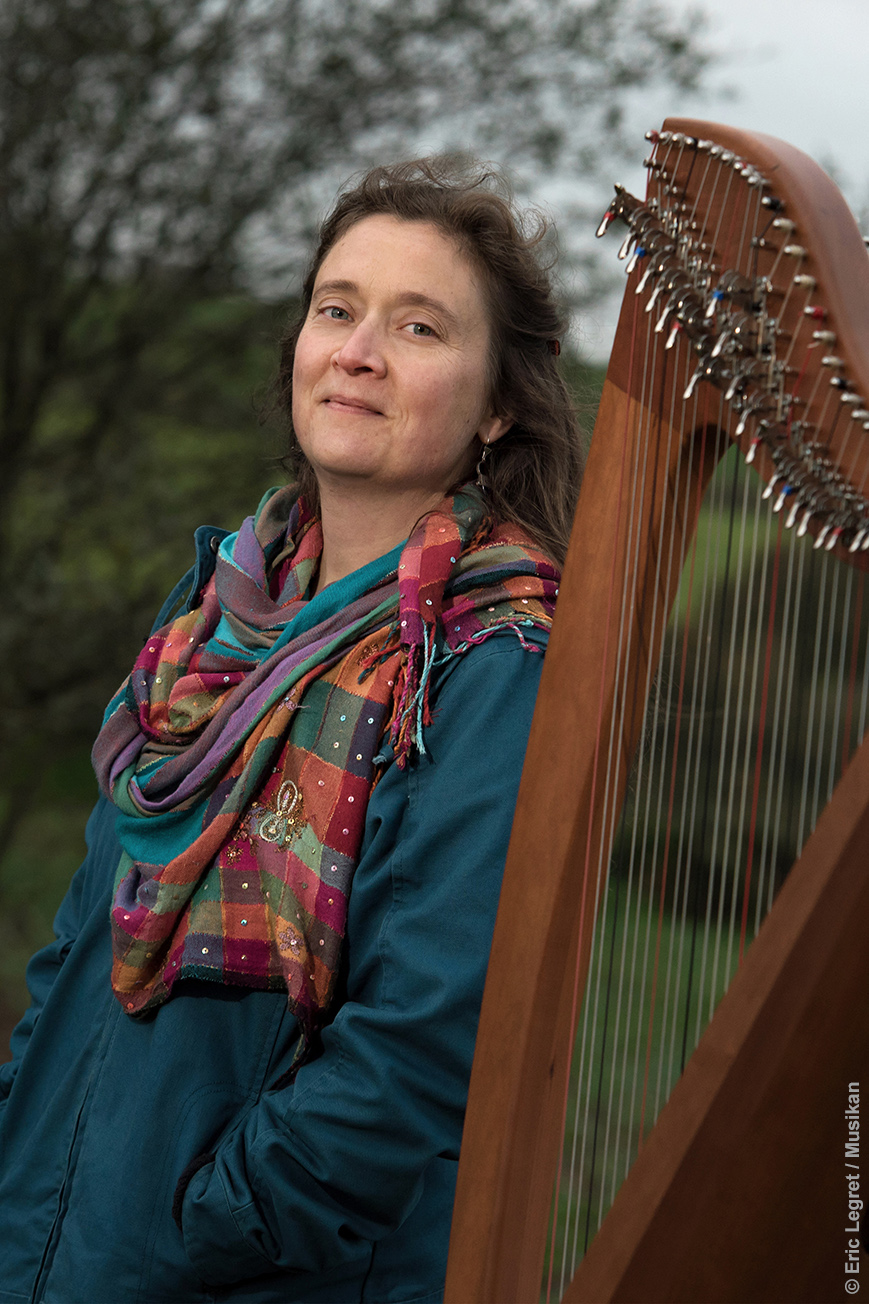
Hoëla Barbedette grew up in the centre of Brittany where she started learning the celtic harp at the age of seven. Graduated as a state teacher of Breton Folk Music, she is actually working in a music school in Brittany, and gives also workshops and concerts in France and Europe. She is known for her play highly inventive, both strong and sensitive, and also for her experimental use of a harp featuring quarter-tones levers in addition to the usual semi-tones levers. Among numerous and varied musical experiences, she recorded two albums in duo with the double-bass player Delphine Quenderff, one with the sixteen-musicians Breton band Norkst (the Kreiz Breizh Akademi project), one with Bon Matin (with three musicians from Poitou and Belgium). Her use of the quarter-tones lever harp is developed on her two solo albums and her duo around breton modal songs with singer Eric Menneteau.
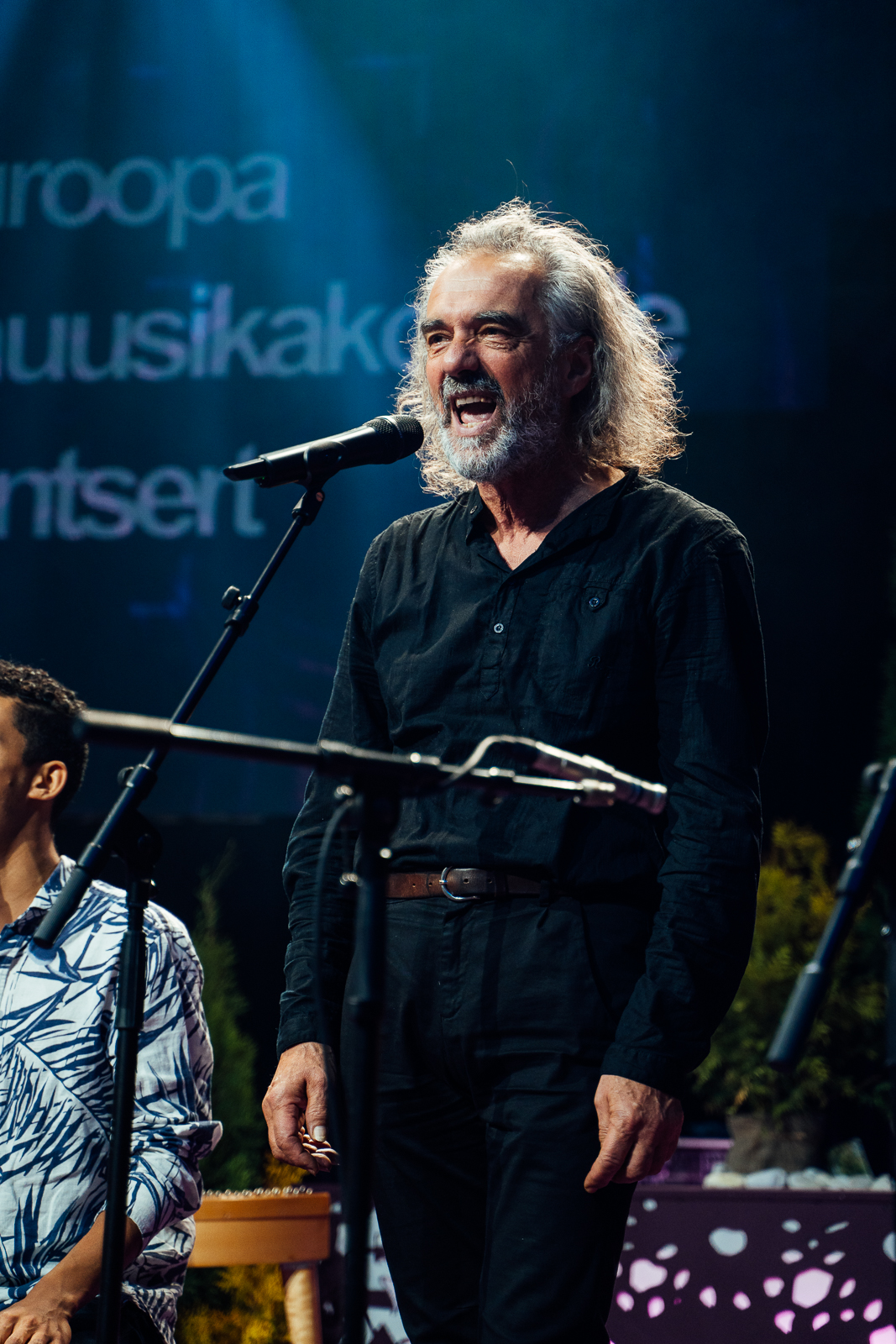
Philippe Compagnon learns traditional singing since young age from his mother Huguette Compagnon, singer collected by Michel Valière. In 1971 he becomes member of association “La Marchoise”, learns then teaches diatonic accordion and fiddle from musicians met during collecting sessions organised by the association. In the 80’s he presides association la Marchoise and becomes member of administration council of UPCP Métive (Parthenay) where he manages the music commission and works on creation of festival “Bouche à Oreille”. He composes and arrange workshops, shows and storytelling for La Marchoise and UPCP Métive. Philippe graduated from traditional music bachelor of professional musician in 2003. He creates and manages the oral school music of Gencay (Vienne) until 2014. Studies advisor for pôle Aliénor from 2010 to 2018, he manages traditional music department of pôle Aliénor since September 2016.
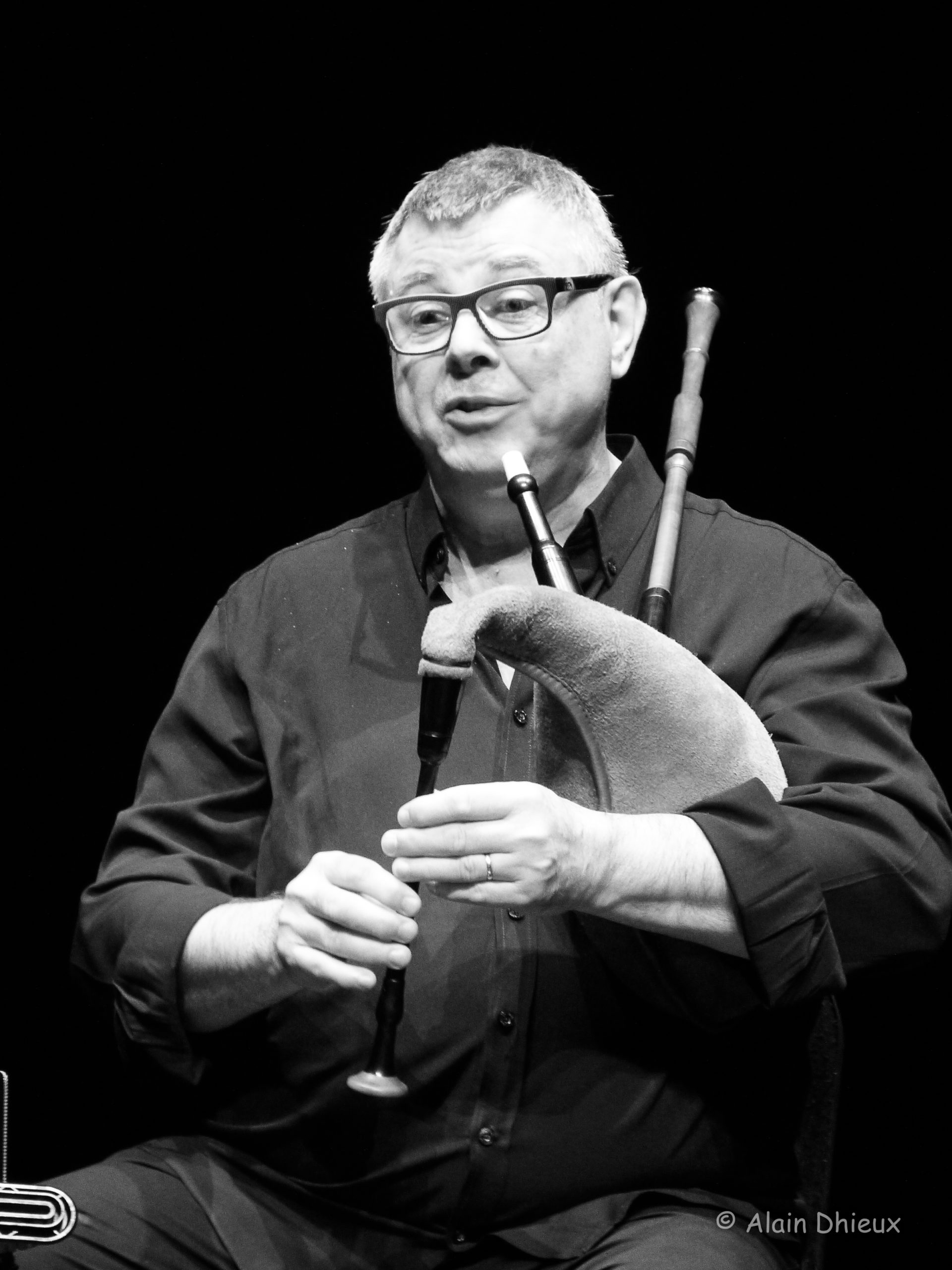
Michel Lebreton is an artist-teacher born in 1954. Plays and teaches traditional music from Berry and other areas from Center of France, he plays musette from Berry. Former head of traditional music department of Calais conservatory. Co-founder of Cric crac company from Villeneuev d’Ascq. Ballroom musician, storyteller, improvisor, show creator and more. His teaching leans on sensoricity, improvisation and group, project pedagogy. Michel teaches for ESMD Hauts de France(Lille), pôle Aliénor (Poitiers-Tours), Cité de la musique (projet Démos).
His websites : http://leschantsdecornemuse.fr/
http://pedagogie-des-musiques-traditionnelles.fr/
Sound miniatures creations and his last show « Sur les frontières » presented here: http://leschantsdecornemuse.fr/concerts.html
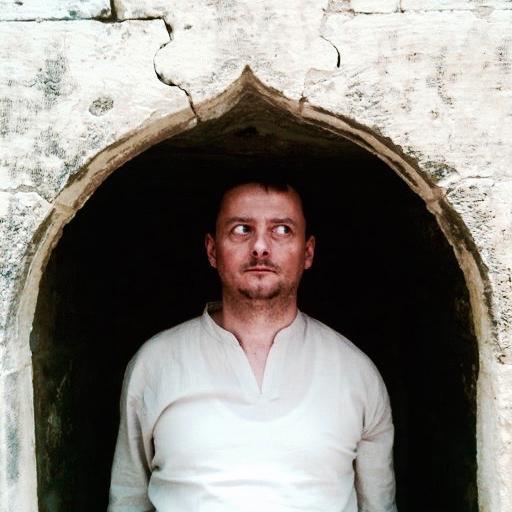
Manu Théron was raised between Algeria and Marseilles, he studied piano since age 7 and learnt singing either with choirs or together with his grand mother. Discovered Occitan language and poetry aged 18, then got involved in the occitan revival movement. In southern Italy as well as in Bulgaria, Manu Theron travelled more than 4 years, discovering traditional singing and polyphony and, most of all, getting along with singers and choirs, learning from them listenning diciplin and musical behaviour in a singing collective. Back in Marseilles in 1995, Manu Théron then decided to dedicate his life to occitan singing and music. In 1995 Manu starts a vocal trio called « Gacha Empega », very quicly known all around the France for its incredibly punky vocal performances, and founds 4 years later his polyphonic ensemble « Lo Còr de la Plana », that started performing throughout Europe and a few other continents, won several prices, and discoverd the relevance of sharing this new conception of polyphonic singing with as many people as they could. Passionate and active, Manu Théron’s performances and teachings are inspired by popular mediterranean singing, and often require frame percussions together with a strongly expressive vocal presence. MANU THERON – LA COMPAGNIE DU LAMPARO
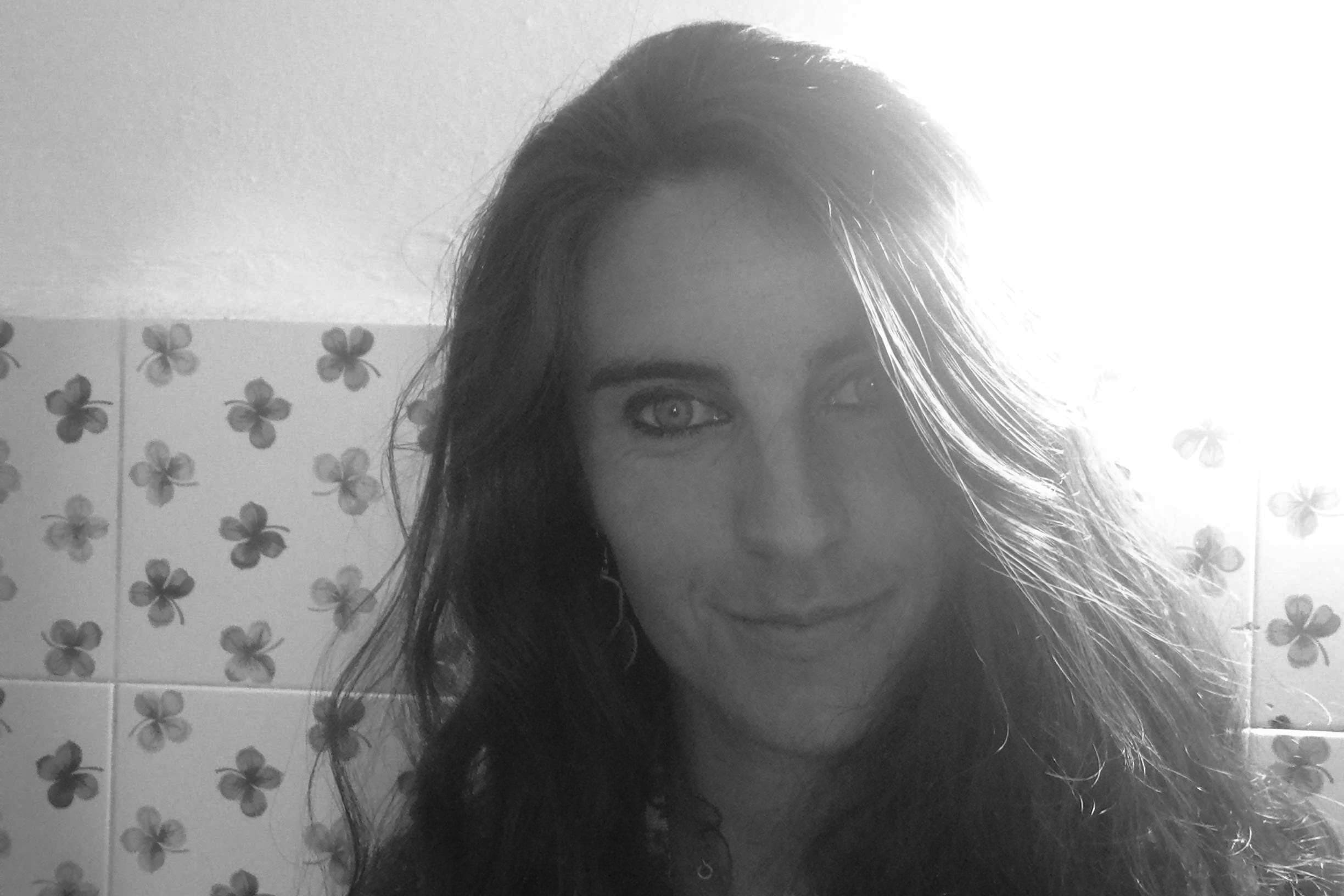
Anthropology doctor at École des Hautes Études en Sciences Sociales (Paris), Sandrine Le Coz carries her researches on market launch of world musicswith a close look towards professional networks structuring their diffusion. Started in Australia, her ethnography of the music industry is transnational, from Borneo to Cuba, Reunion Island to Mozambique, Morocco to Brazil… On the map of music creation, she draws a cartography of actors whose major power resides in attributing an artistic or financial value on pieces. Parallel from her thesis, she also works on world music as a journalist, programming advisor, production and communication diffusion for cultural institutions in France and abroad (Hermès, Philharmonie de Paris, Maison des Cultures du Monde, Festival des Musiques Sacrées in Fès – Morocco, Al Kamandjati in Palestine, World Sacred Spirit Festival in Rajasthan…).